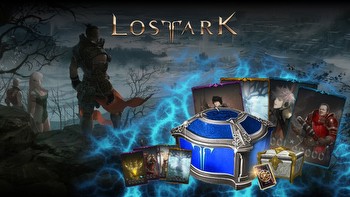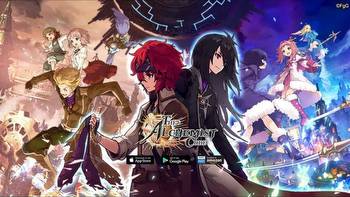The kids have gambling addictions, Mr. President!

Vegas, baby! There’s no better place to blow your life savings while trying to swing a quick buck. Nothing beats the rush of theatrically shoving all your chips into the pot, saying “I’m all in” in a tone dripping with melodrama.
What could be better than putting your money on the line for more money? Putting your money on the line for pixels! In this golden age of gaming, we’ve founded a new, virtual Las Vegas, forged in the fires of capitalistic greed and manipulation.
Games have almost always had microtransactions and in-game stores. From “Fortnite” to “Dead by Daylight,” almost every company running a live operation rakes in a colossal chunk of their income from in-game purchases. Cosmetics, currency and other items all offer incentives for players to drop a pretty penny on online goods. I’d be lying if I said I hadn’t dropped a hefty sum on “VALORANT” skins.
However, there’s another thing players can purchase that I failed to mention — loot boxes. Essentially, a loot box is a virtually sealed item that, when opened, will reveal its random contents. Players can obtain these boxes in a number of ways, but they’re most commonly purchased in the in-game store. Each game usually has its own loot box system with a unique name and experience associated with it.
Games like “Counter-Strike: Global Offensive” and “Genshin Impact” are both famous for their highly addictive loot box systems. In “CS:GO,” players crack open cases for cosmetic items like skins to play with in-game. Because of the rarity of some of these items, buying even one case can cost a player more than $20 without any guarantee of actually gaining a valuable skin from it. Some of the skins in “CS:GO” can be worth $15,000 or more — which is how players justify their relentless spending on cases that potentially could be (and usually are) worthless.
The loot box system of “Genshin Impact” is a bit more nuanced, drawing from what’s called a “gacha system.” In “Genshin,” the player can collect characters to permanently add to their team. To obtain these characters, they must “wish,” which expends premium currency. Every wish has the chance of producing a five-star character, but these odds are quite low — only a 0.6% chance per pull.
Though consistent gameplay yields this currency slowly, limited-time “banners” that feature exclusive characters are cycled in and out of play. This makes it almost impossible to obtain every character the player desires without shelling out money for the premium currency — and even then there’s no guarantee that their wishes will produce their desired result.
So what’s the problem? Sure, virtual gambling systems are concerning, but online gambling has been around since the inception of the internet. The issue arises when we remember what demographic makes up a large percentage of those who play these games: children.
The legality of gambling in the United States is complicated — zoning and licensing restrictions imposed by state governments tend to muddy the waters. What isn’t complicated is that gambling is illegal for every individual under the age of 18 or 21, depending on the state. I mean, imagine a 14-year-old child wasting their monthly allowance at a slot machine. Ridiculous, right?
Unfortunately, that ridiculous mental picture has bled into reality. Every day, minors collectively spend thousands of dollars on virtual loot boxes in the in-game stores of numerous games. Worst of all: These loot boxes are almost entirely unregulated within the U.S. A whole virtual casino lies at the fingertips of any child with an internet connection.
Before the practice was banned from Twitch, “CS:GO” loot box opening streams were prominent with some streamers with largely young audiences. Streamers like xQc would often open cases between stream segments and hype up the excitement of their excessive gambling. xQc’s broadcasts screamed, “Look how fun gambling is!” to his young, dedicated and easily impressionable fans.
“Genshin Impact” and other gacha games feature bright colors and simple language in their marketing materials, making them easily digestible for children. Promotional videos for these games heavily push the striking and charismatic characters — the same characters that may take nearly $200 to obtain through the game’s loot box system. Worst of all: “Genshin” is rated “Teen” by the Entertainment Software Rating Board, with no indication for parents of the dangers sealed within the game.
We already know how addictive gacha games can be for fully developed adults. On its most successful “Genshin” banner this year, HoYoverse made more than $38 million thanks to the zealous contributions of “whales,” those willing to spend upward of $1,000 to obtain and max out their favorite characters.
If these games can have such a stiflingly addictive effect on an adult, imagine how damaging something like this is for a child. Multiple reports from the past five years reflect the dangers of these loot boxes, telling the stories of children who spent hundreds, even thousands of dollars of their parents’ money on loot boxes.
As stated in Forbes, “Emerging research suggests that loot box purchases and similar gambling behavior among children or teens can lead to problem gambling later in life.” Just like any other addiction, a gambling addiction will only lure its victim further into their already full-throttle downward spiral. Behaviors children practice stick with them, so if one of those behaviors is gambling, it’d be unsurprising to see a former loot box addict at the blackjack table in 10 years.
It’d be unrealistic to call for a regulation crack-down on loot boxes in games — experts have already been doing so for years. However, something as simple as placing a warning on a game’s store page or making every game with loot boxes rated 18+ could help mitigate the number of children affected. For now, we have to take our gamble and play the waiting game, hoping our pleas for regulation will be heard.
Aubrie Cole is a sophomore writing about video games in her column, “Downloadable Content,” which runs every other Tuesday. She is also an arts & entertainment editor at the Daily Trojan.





































